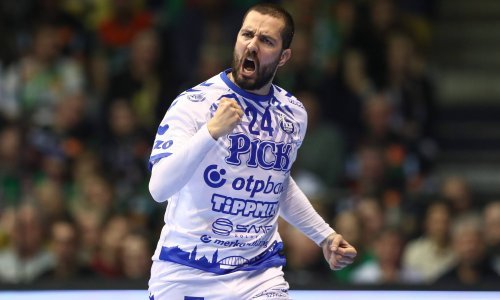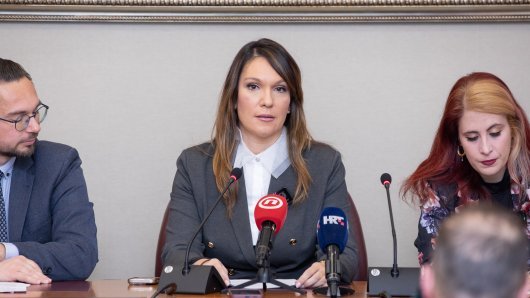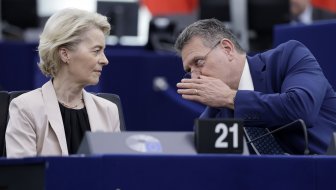The European Parliament's Rapporteur on Croatia, Hannes Swoboda, said in Brussels on Wednesday that theoretically it was possible for the European Parliament to give its consent for the Accession Treaty with Croatia in July 2011, which would enable Croatia to join the European Union on 1 January 2013.
The Commission will present its report on compliance with the benchmarks in the chapter "Judiciary and Fundamental Rights" sometime in March and if everything is all right, it will be possible to wrap up the negotiations in June. In that case it is theoretically possible for the European Parliament to give its consent during the July session and if not at that session, then in September or October, which is rather late, but it would still enable Croatia to join the bloc on 1 January 2013, said Swoboda who presented a report on Croatia to the European Parliament's Committee on Foreign Affairs. On the basis of the report, a resolution on Croatia's progress is to be voted, first by the Committee on Foreign Affairs and then by all deputies in the European Parliament.
After all negotiation chapters are closed, an accession treaty must be signed.
Swoboda warned that some countries needed to be persuaded, such as the Netherlands which hesitates when it comes to EU enlargement, and that talks had to be held with Slovenia so that the ratification process was not obstructed.
Bernd Posselt of the European People's Party (EPP) said that pressure must be exerted so that the negotiations could be wrapped up in the first half of 2011 and ratification concluded during 2012 at the latest.
Swoboda told the Committee the Croatian government had done a great job with reforms in the past several months and that major steps had been taken in the judiciary reform.
He also warned about the "sensitive issue" of cooperation with the UN war crimes tribunal at The Hague, stressing that Croatia should fully cooperate with the ICTY and establish if artillery logs wanted by the ICTY prosecution had ever existed, had been destroyed, or had gone missing.
Swoboda also said that the judiciary reform must be completed and the fight against corruption continued, and that the question of shipyards and other outstanding issues should be resolved.
He stressed that Croatia's fast accession had both a European and a regional dimension.
Swoboda voiced concern about the results of the latest Eurobarometer opinion poll which shows that most Croatian citizens think that the country would not benefit from EU membership, calling on the Croatian authorities to invest more effort so that Croatians could start feeling that the European project is also their project.
Swoboda called on Croatia to focus on the areas pointed out by the European Commission in its latest progress report, released in early November.
Members of the Foreign Affairs Committee can submit amendments to Swoboda's report by 14 December. A debate on the amendments will be held on 25 January 2011.
































